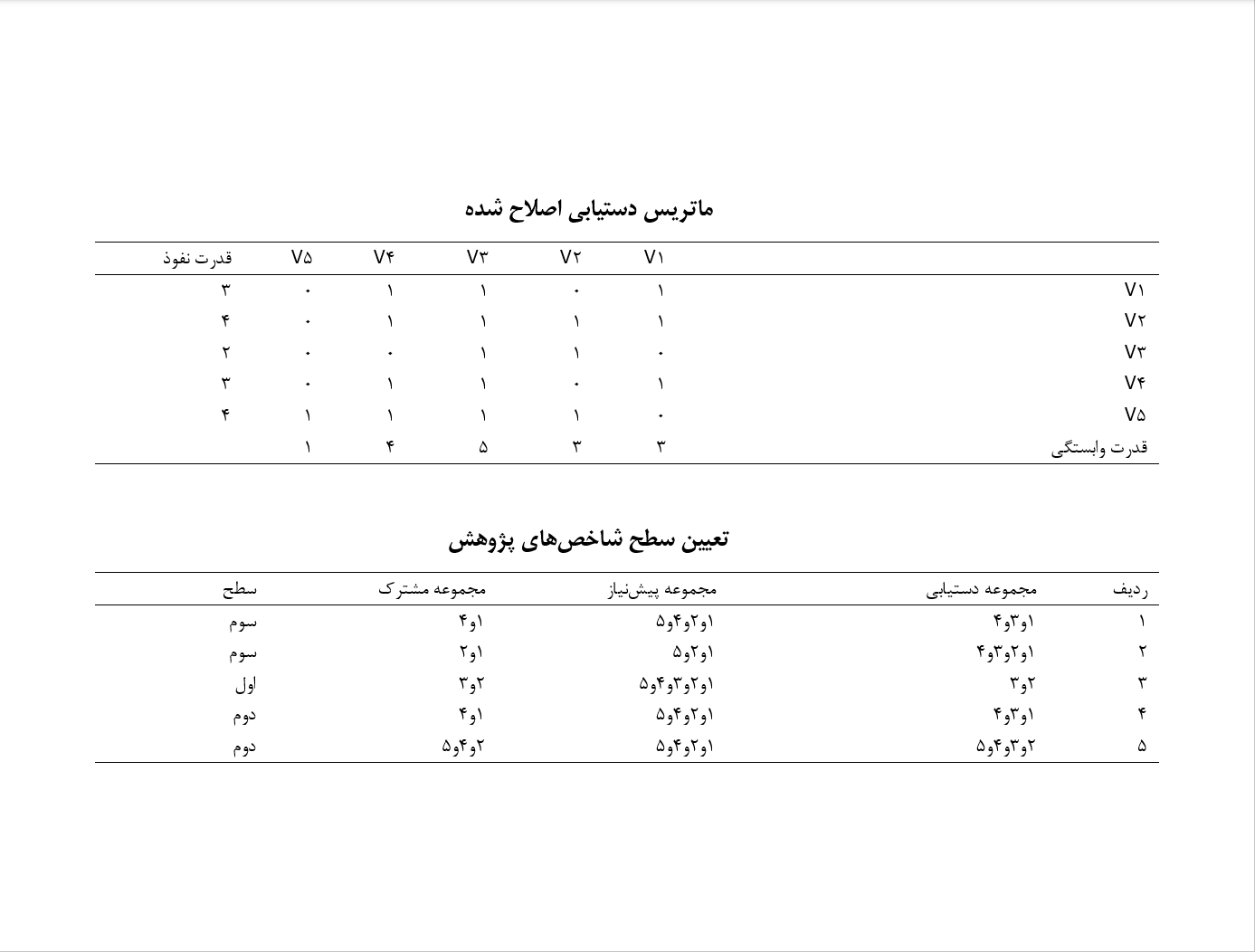Examining and Explaining the Implementation Barriers of the Fundamental Transformation Document in the Education System
Keywords:
implementation barriers, challenges, Fundamental Transformation Document, education systemAbstract
This research is a cross-sectional study in terms of its temporal scope, and in terms of cognitive purpose, it is a descriptive-applied research. The research strategies can be explained within the framework of correlational and survey studies. Since the current study is of a survey type, more attention is paid to the survey strategy. In the qualitative section, the statistical population consists of the National Education Organization; in this study, 20 individuals who have been involved in the field of the Fundamental Transformation Document will be selected. In the quantitative section, a questionnaire was randomly distributed among a preliminary sample of 25 managers, teachers, and staff from the Department of Education. The data for this study will be collected through semi-structured interviews to identify the challenges and barriers to the implementation of the Fundamental Transformation Document in the education system. The research findings identified five factors—policy-making, conceptual, managerial, legislative, and executive—as the challenges and barriers to implementing the Fundamental Transformation Document in the education system. Consequently, the content of education programs should be modified in accordance with the document. Internal communications should be leveraged to facilitate the implementation of the document and increase the emphasis on its execution. The appendices of the document should be formulated in a way that creates an opportunity for school-based management, and through the higher ranks of the Ministry of Education, the resolve of education departments to implement the Fundamental Transformation Document should be strengthened. Additionally, an organizational structure suitable for the document should be established within the education system.
Downloads
References
Hassanpour A, Azizi N, Ahmadi A, Gholizadeh I, Ramezani SG. Diversity in Iranian Upstream Educational
Documents. Journal for Multicultural Education. 2023;17(3):278-90. doi: 10.1108/jme-06-2022-0079.
Mohammadpour S, editor The Basic Principles of Islamic Education. First International Conference on Management,
Economics, Accounting, and Educational Sciences; 2015; Sari: Future Makers Research and Consulting Company, Payam
Noor University, Neka.
Eshteri Larki MH. Presenting a Self-Evaluation Model for High Schools in Tehran Based on the Fundamental
Transformation Document of Education: Allameh Tabataba'i University; 2018.
Koohpeima Roonizi S. Identifying and Evaluating Barriers to the Operationalization of the Goals of the Fundamental
Transformation Document of Education from the Perspective of School Principals and Teachers in Fars Province: Kashan
University; 2018.
Fazel M. Reviewing the Performance of the Ministry of Education in Implementing the Fundamental Transformation
Document: Islamic Azad University, Marvdasht Branch; 2019.
Hedayati F, Kharazmi R. A Study of the Challenges in Implementing the Programs of the Fundamental Transformation
Document Based on the Principles of Organizational Change Management. Management Engineering Bi-Monthly.
;8(65):6.
Mohammadsharifi R. A Study on the Awareness and Perspective of Teachers and Principals in Saqqez County About
the Fundamental Transformation Document and Its Implementation Barriers: Aras International Campus; 2015.
Kafshchian Moghadam A, Maleki H, Sadeghi A. Designing a Citizenship Rights Curriculum Model for the Second
Period of Elementary Education. Iranian Journal of Educational Sociology. 2024;7(2):1-7. doi: 10.61838/kman.ijes.7.2.1.
Ghasemi MA. A Jurisprudential and Legal Review of the Fundamental Transformation Document of Education:
Islamic Azad University, Central Tehran Branch; 2014.
Eisapour AA, editor A Review and Critique of Religious Education in the Fundamental Transformation Document of
Education. International Congress of Culture and Religious Thought; 2014; Qom: Cultural Engineering Steering Center, Public
Culture Council of Bushehr Province.
Yoonesi M, Jafari S. Designing the Framework of Specialization in the Recruitment of Non-Teaching Staff in Iran's
Ministry of Education. Iranian Journal of Educational Sociology. 2024;7(2):85-97. doi: 10.61838/kman.ijes.7.2.11.
Golabchi H, Kiaee M, Kameli MJ. Designing a Superior Service Delivery Model in Education to Enhance Public
Satisfaction. Iranian Journal of Educational Sociology. 2024;7(1):189-97. doi: 10.61838/kman.ijes.7.1.18.
Salman Al-Oda AH, Sadeghi M, Al-Murshidi RHA, Sharifi S. Investigating the Relationship Between Talent
Management Implementation Categories in the Basra Province Education Organization. Iranian Journal of Educational
Sociology. 2024;7(1):1-9. doi: 10.61838/kman.ijes.7.1.1.
Abdi H, Mirshah Jafari SI, Nili MR, Rajaipour S. A Study of the Visons and Missions of Iran’s Higher Education in
Plan: An Analysis of Priorities and Opportunities. Strategy for Culture. 2020;13(49):223-50. doi:
22034/jsfc.2020.109871.

Downloads
Published
Submitted
Revised
Accepted
Issue
Section
License
Copyright (c) 2024 Journal of Study and Innovation in Education and Development

This work is licensed under a Creative Commons Attribution-NonCommercial 4.0 International License.










